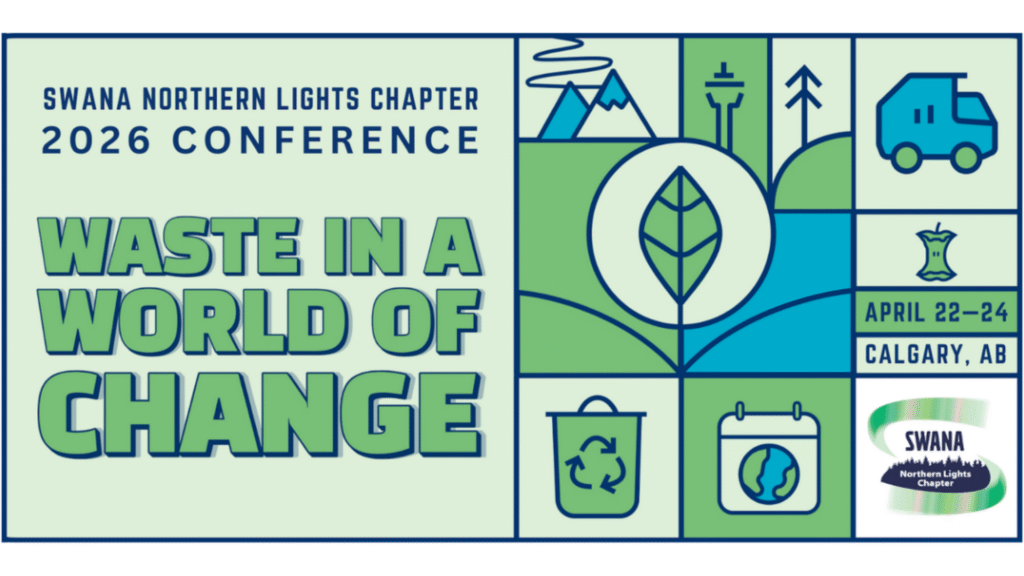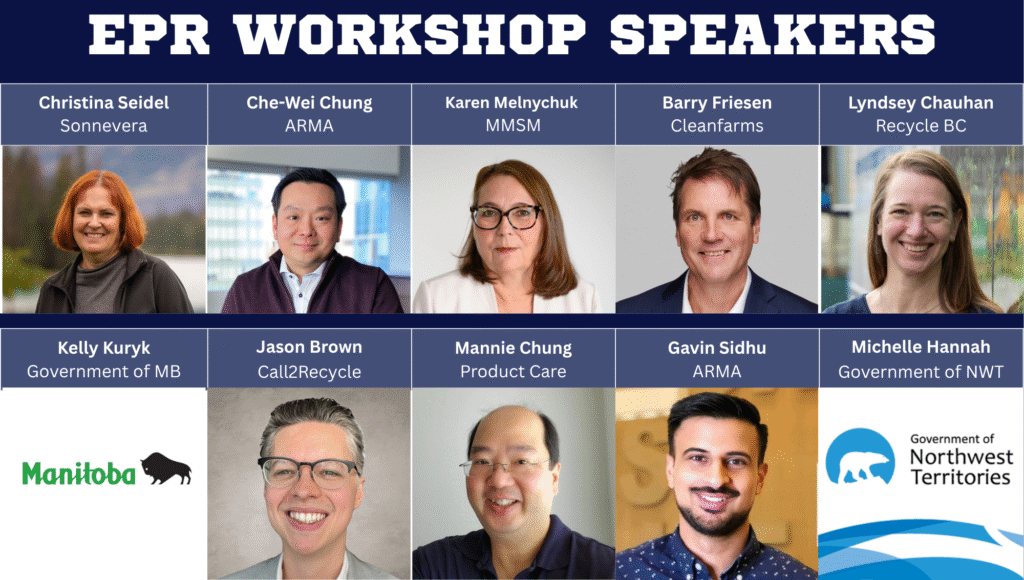
SWANA Northern Lights Chapter 2026 Conference
Call for Presentations Now Open
The SWANA Northern Lights Chapter 2026 Conference will be held April 22–24, 2026, at the Fairmont Palliser in Calgary, Alberta. The opening day coincides with Earth Day, a reminder of the broader context in which the waste management industry operates.
The theme, Waste in a World of Change, reflects a sector under pressure to adapt. Climate change, increasingly frequent disasters such as wildfires and floods, trade disruptions, fast-moving technology, and population growth are reshaping today’s systems. What were once considered “1-in-100-year” events now occur every few years, demanding flexibility, responsiveness, and resilience.
Registration and the full program will be launched in the coming months.
Call for Presentations
Do you have some exciting work going on or a project that has taught lessons that you would like to share, let us know and you may get the opportunity to join a prestigious group of presenters at the Conference.
Abstract Guidelines
- 300 words maximum
- Include presentation title, speaker name(s) and organisation(s)
- Provide three learning outcomes
- Contact information
- Deadline: Friday, October 31, 2025
- Submit to: info@swananorthernlights.org
Topics of interest include:
- Extended Producer Responsibility (EPR)
- Insurance in waste management
- Climate change and disaster management
- Composting and organics
- Debunking myths in waste and recycling
- Safety, training, and workforce development
- Disaster debris management
- New technologies and their waste impacts
- Recycling markets and MRF operations
- Transfer stations and collections
- Construction, demolition, retrofitting, restoration, and deconstruction
- Battery management and recycling (including EVs and ARMA)
- Buy Canadian: sector opportunities and contributions
- Data, KPIs, and design for circularity
- Landfills, LFG, leachate, and cover systems
- Repurposing office buildings and alternative uses for infrastructure
- Reuse, repair, and textiles
- Smaller-scale organizations, student entrepreneurs, and circular economy projects
Submit your abstract (300 words max) to info@swananorthernlights.org by October 31, 2025 for a chance to present. More details can be found here.


